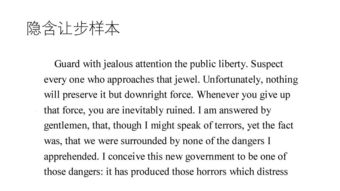去梵蒂冈留学的利弊英语
Pros and Cons of Studying Abroad in the Vatican
Studying abroad can be a lifechanging experience, offering opportunities for personal growth, cultural immersion, and academic enrichment. When considering where to study abroad, the Vatican City may not immediately come to mind, but it presents a unique and enriching environment for certain fields of study. Let's explore the advantages and disadvantages of studying abroad in the Vatican:
1. Cultural Immersion:
Studying in the Vatican provides unparalleled access to one of the most culturally and historically significant locations in the world. From art and architecture to religion and history, students can immerse themselves in the rich cultural heritage of the Catholic Church.
2. Academic Opportunities:
The Vatican is home to various academic institutions and libraries, offering resources and opportunities for students interested in fields such as theology, art history, archaeology, and religious studies. Students can benefit from studying under experts in these fields and conducting research in unique archival collections.
3. Spiritual Growth:
For students interested in theology or pursuing a deeper understanding of Catholicism, studying in the Vatican provides a spiritually enriching environment. They can attend papal audiences, participate in religious ceremonies, and engage in discussions with scholars and clergy.
4. Networking:
Being in the heart of the Catholic Church allows students to establish valuable connections with professionals, academics, and clergy members from around the world. These connections can open doors to future opportunities in academia, research, or religious institutions.
1. Limited Program Offerings:

While the Vatican offers unique opportunities for certain fields of study, its academic programs may be limited compared to universities in larger countries. Students pursuing degrees outside of theology or related fields may find fewer options available.
2. Language Barrier:
While English is widely spoken in academic settings, students may encounter a language barrier when interacting with locals or navigating daily life in Vatican City. Proficiency in Italian, the official language of the Vatican, can enhance the overall experience.
3. Cost of Living:
Vatican City is one of the most expensive places to live in the world, with high costs for accommodation, dining, and entertainment. Students should carefully budget and explore scholarship opportunities to manage expenses during their time abroad.
4. Limited Recreational Opportunities:
Due to its small size and primarily religious focus, Vatican City may offer limited recreational activities compared to larger cities. Students seeking vibrant nightlife or extensive leisure options may need to travel to nearby cities.
Studying abroad in the Vatican can be a deeply rewarding experience for students interested in theology, art history, or religious studies. It offers unique opportunities for cultural immersion, academic growth, and spiritual exploration. However, prospective students should carefully consider the limitations and challenges associated with studying in a small, religiously focused city. By weighing the pros and cons and adequately preparing for the experience, students can make the most of their time studying abroad in the Vatican.
